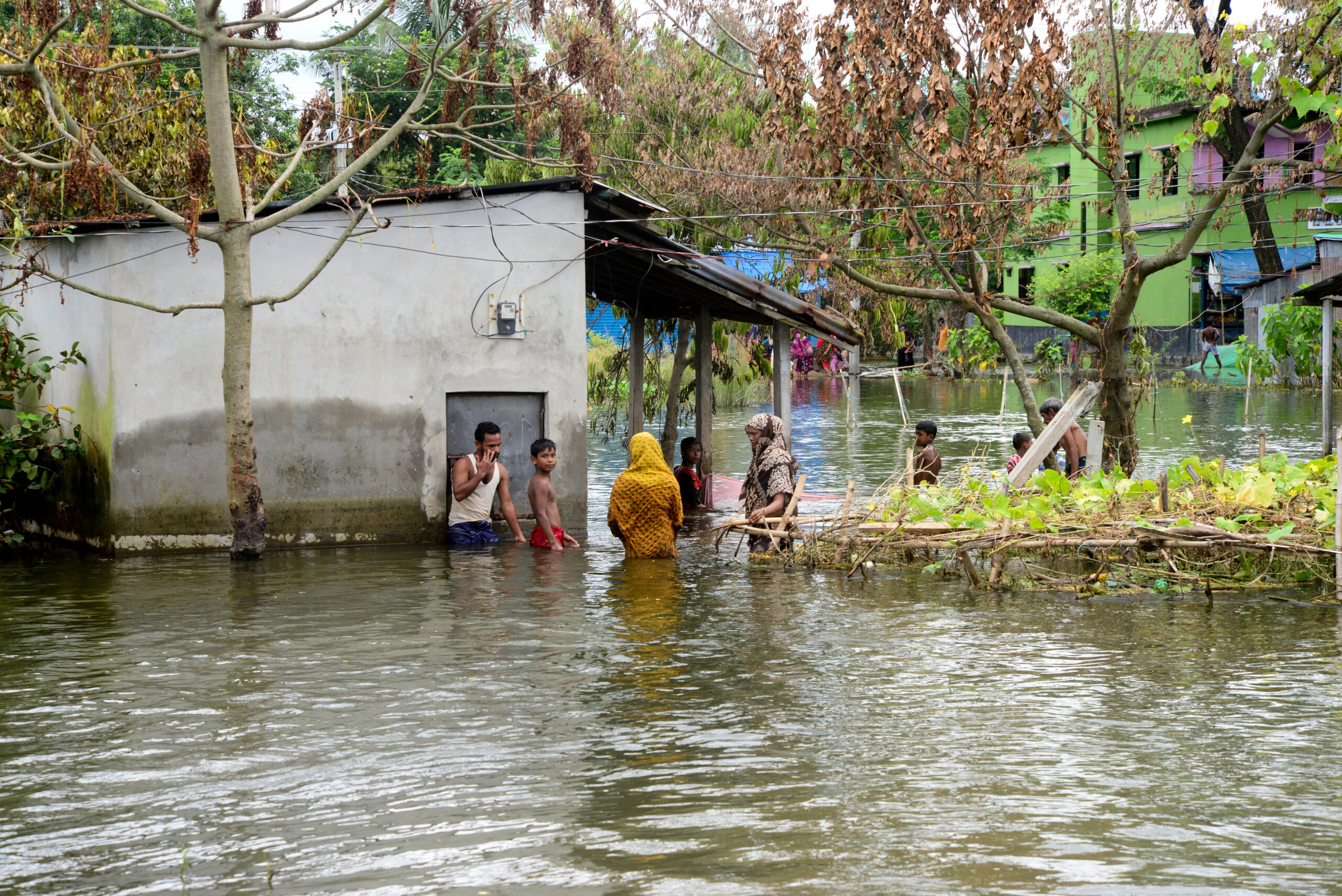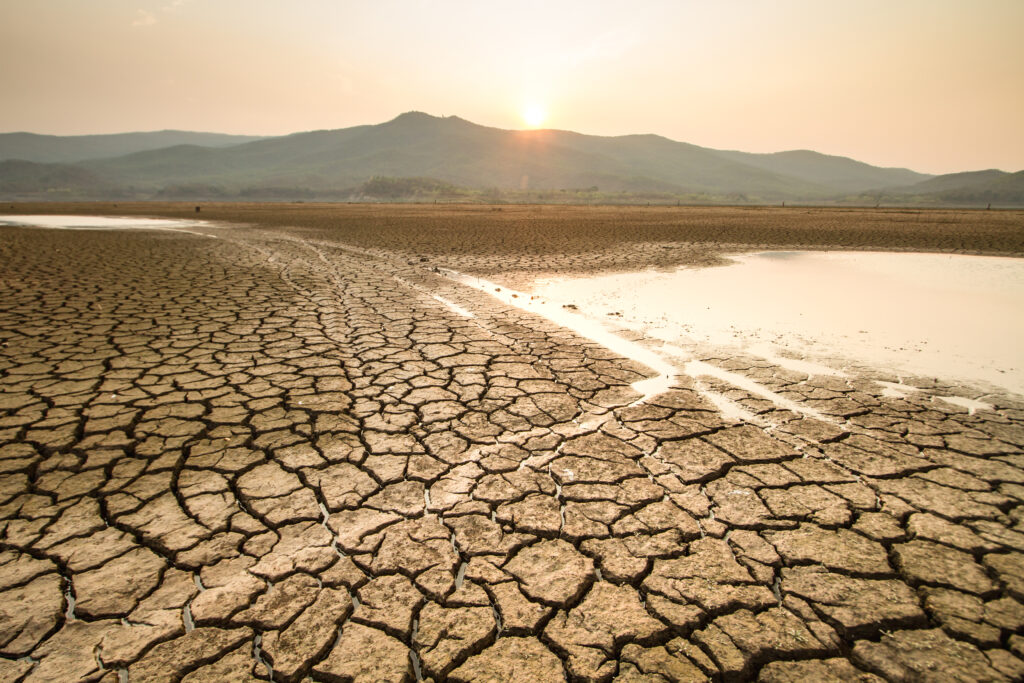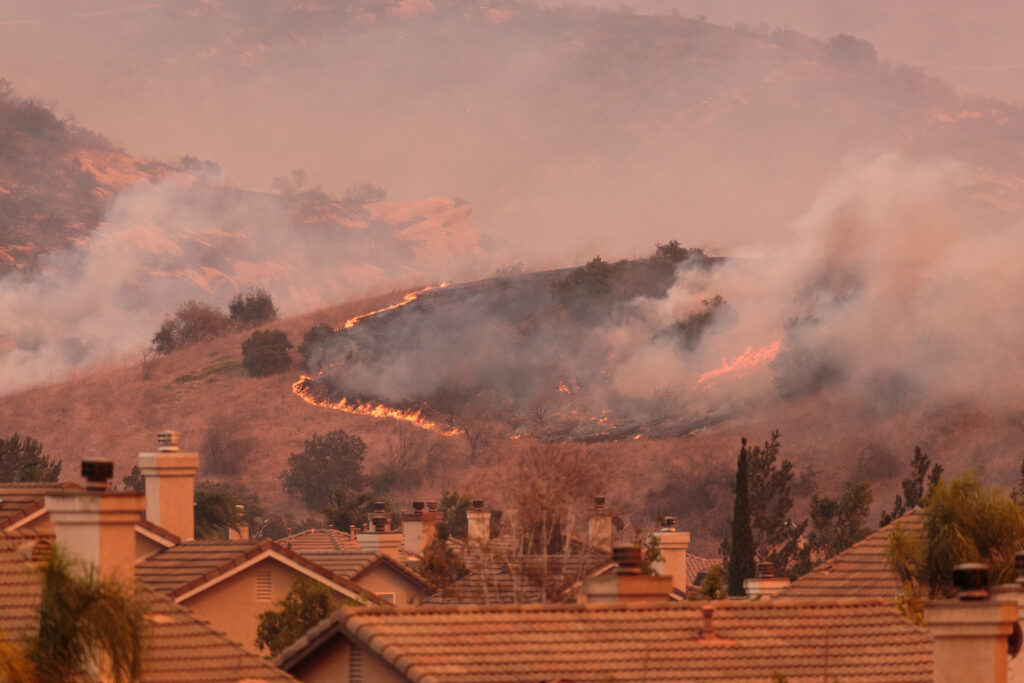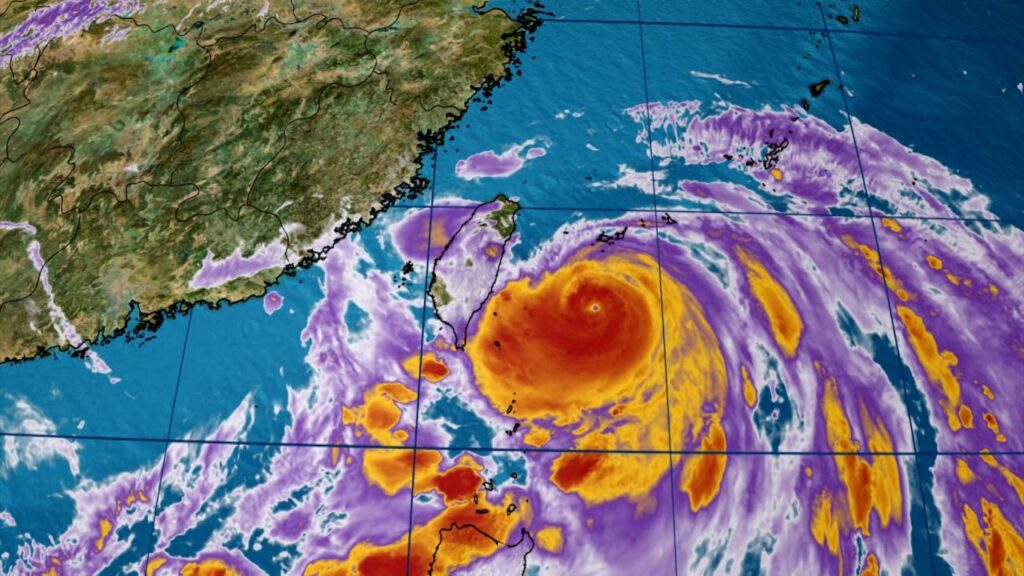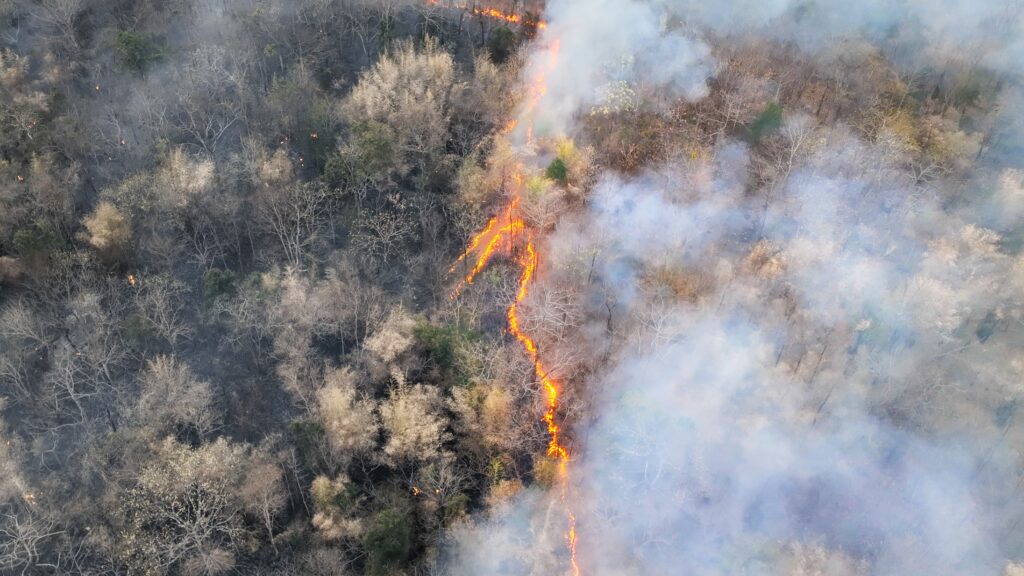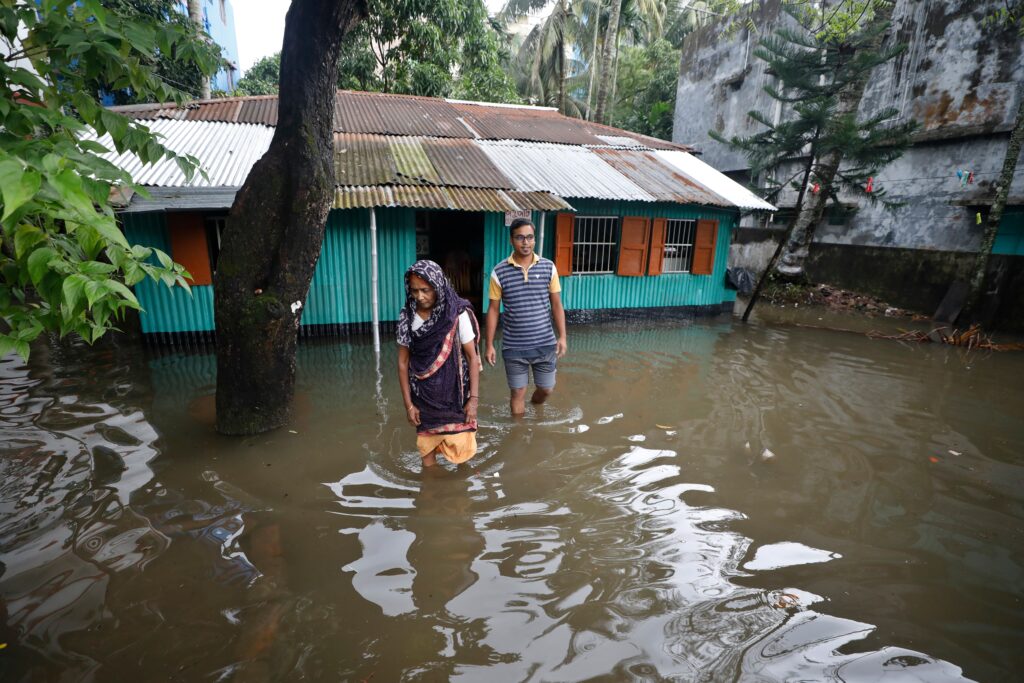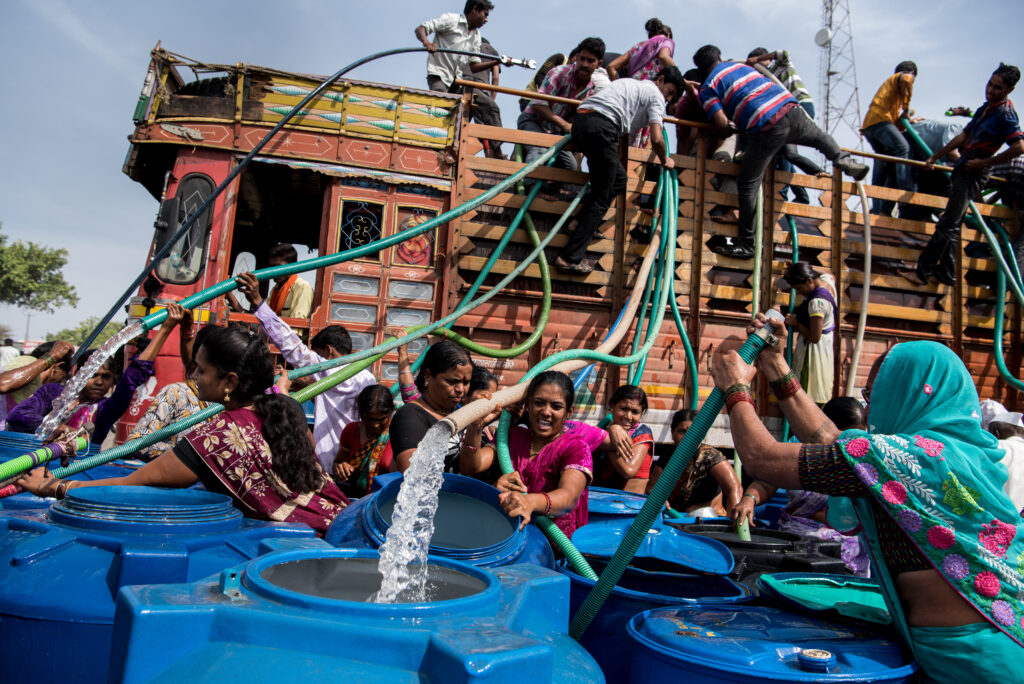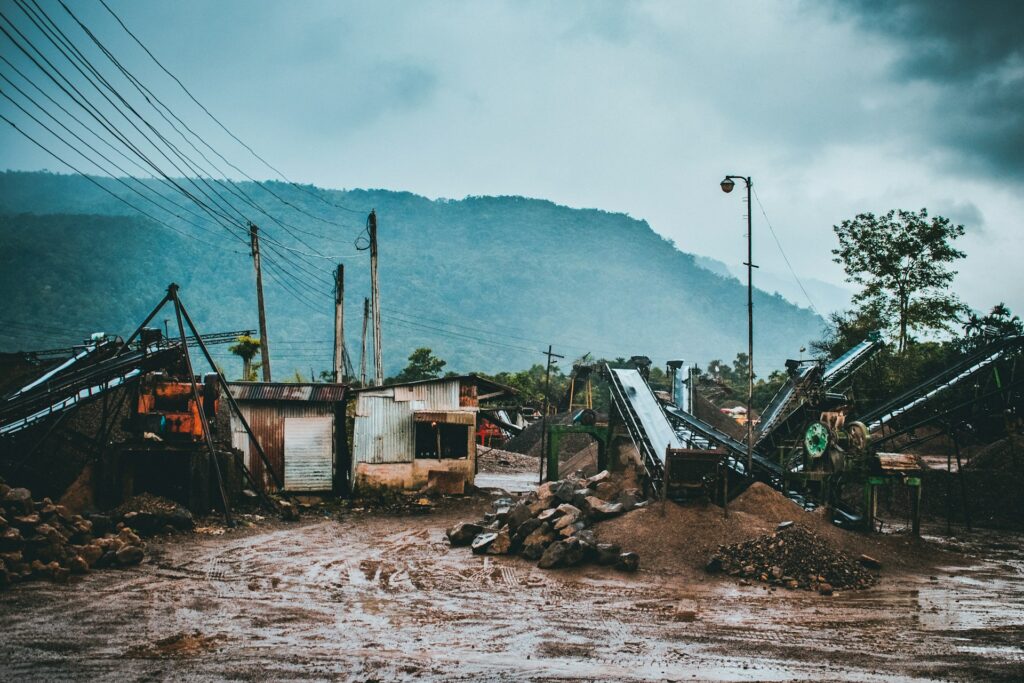Cyclone Hamoon made landfall in the southeastern coast of Bangladesh on October 24, 2023. The heavy winds and rain left a trail of destruction, causing serious property and environmental damage. Almost half a million people were impacted, including 275,000 who were forced to find emergency shelter. The cyclone killed three people and injured many more.
Bangladesh is one of the most disaster-stricken nations in the world, and eight of the world’s 10 deadliest tropical cyclones have originated in the Bay of Bengal. Bangladesh’s low-lying coastal communities are particularly vulnerable to increasing extreme weather, with storms, floods and coastal erosion frequently causing devastation. Scientists have attributed climate change to fuelling more powerful cyclones, predicted to intensify as the planet heats.
How Severe Was Cyclone Hamoon?
Cyclone Hamoon is the most recent major storm in the Bay of Bengal. Before making landfall in the coastal regions of Bangladesh, the storm brought heavy rainfall to many of India’s eastern and northeastern regions. Authorities in Odisha and West Bengal ordered the evacuation of people from low-lying areas and asked fishermen not to go out to sea.
In the early hours of October 24, Cyclone Hamoon reached the Chittagong and Cox’s Bazar coastal districts, bringing severe rainfall and wind speeds up to 104 km/h.
Hamoon is the fourth named storm of the 2023 North Indian Ocean cyclone season. In May, Cyclone Mocha emerged as the most potent storm to strike Bangladesh since the devastating Cyclone Sidr in 2007 that killed more than 3,000 people. Climate scientist Dr. Roxy Mathew Koll said climate change is playing an important role in making cyclones in the Bay of Bengal intensify more quickly. “As long as oceans are warm and winds are favourable, cyclones will retain their intensity for a longer period,” said Dr. Koll.
Cox’s Bazar Bears the Brunt of Cyclone Hamoon in Bangladesh
Cyclone Hamoon took a heavy toll on Bangladesh’s Cox’s Bazar, the disaster’s worst-affected area. The cyclone caused power and communications outages and caught residents off guard due to its sudden arrival. It damaged more than 30,000 households in the area, displacing more than 40,000 people, including 800 Rohingya refugees.
A video shared by Reuters of the cyclone’s aftermath showed the devastation Cyclone Hamoon inflicted on the community, including destroyed and damaged homes and uprooted trees. Cox’s Bazar resident Nurjahan Begum said, “Last night the heavy wind took away my house made with corrugated sheets.” Begum added, “We took shelter in another house. Everything is soaked in rainwater. Now what should I do? (I) don’t know.” In the cyclone’s aftermath, locals worked to clear up the destruction, while humanitarian response teams provided emergency healthcare services.
Climate Change and Cyclones: What Does the Science Say?
Climate change is intensely and rapidly disrupting the Earth’s weather systems, making cyclones and their associated rainfall events more severe. A hotter planet impacts cyclones in three significant ways: by heating the air, heating the ocean and causing sea levels to rise.
This is because a warmer atmosphere can hold more water, making downpours more torrential. Globally, atmospheric water vapour has increased by 5% to 20% since the 1960s, which is the leading factor in extreme rainfall events in recent decades.
A warmer ocean also fuels the strength of cyclones. “Climate change, therefore, creates the conditions in which more powerful storms can form, intensify rapidly and persist in reaching land while carrying more water,” the World Weather Attribution group said.
With planetary greenhouse gas emissions rising, global air and ocean temperatures reached new record highs in 2023, fuelling the conditions that cause the most intense cyclone impacts. The resulting “summer of extremes” has had cascading and devastating impacts on human lives worldwide.
Mobilising Funding For Adaptation and Loss and Damage
For nations like Bangladesh, which face a barrage of repeated climate-related extremes, securing funding for disaster risk reduction measures is vital to safeguard lives and communities from events such as Cyclone Hamoon. “Over the past six months, Cox’s Bazar district has been repeatedly hit by climate-induced disasters, including Cyclone Mocha and a devastating flash flood in Chakaria,” said Hasina Rahman, International Rescue Committee (IRC) Bangladesh Director. “It is imperative that we focus on sustainable solutions to reduce disaster risks, prepare communities against climate impacts, and ensure their resilience. Uninterrupted and sustainable funding is crucial in addressing these pressing climate crises in Bangladesh.”
Protective measures include early warning systems, climate-resilient infrastructure, natural and built sea wall protection and resilient water resources. Such adaptation efforts can help to save lives, jobs, land and infrastructure and support long-term sustainable development. With the climate crisis escalating, unlocking investment is crucial, and the COP28 Presidency is advocating for new pledges to double adaptation finance by 2025 and the successful replenishment of the Adaptation Fund.
Along with this, loss and damage funding is also crucial to help nations, such as Bangladesh, rebuild and recover from recurring climate disasters and extremes. In early November 2023, governments drew up the blueprint for this new fund, which nations must now formally adopt during the upcoming climate conference. COP28 President Sultan Al Jaber underlined its importance, emphasising that “billions of people, lives and livelihoods” depend on the successful adoption and operationalisation of funding for climate-induced loss and damage.
Evelyn Smail
Writer, United Kingdom
Evelyn is a freelance writer and journalist specialising in climate science and policy, the just energy transition and the human impacts of climate change. She writes for independent publications, NGOs and environmental organisations. Evelyn has a background in sustainable development, climate justice and human rights.
Evelyn is a freelance writer and journalist specialising in climate science and policy, the just energy transition and the human impacts of climate change. She writes for independent publications, NGOs and environmental organisations. Evelyn has a background in sustainable development, climate justice and human rights.

